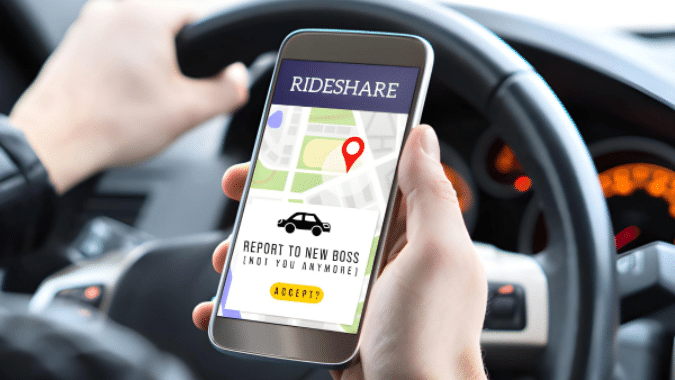The New Jersey Department of Labor and Workforce Development proposed a new rule this week that would classify more gig workers, including drivers for rideshare and meal-delivery apps and freelance writers, as normal company employees.
While the rules purport to provide protections to independent contractors, NJBIA Vice President of Government Affairs Elissa Frank said the proposal will instead reduce their freedoms, while greatly increasing labor costs for businesses.
“The main takeaway is that under the proposal it will be extremely difficult to be considered an independent contractor in New Jersey,” Frank said. “And that may be what the Department of Labor’s goal is, in the name of worker protections.
“But we contend that this rule, as currently written, will do much more harm than good. It will undoubtedly reduce autonomy for freelance workers, and it will greatly add to business labor costs. It will also likely add to increased prices in an already unaffordable state and less service for customers, particularly for the many people who use services like Uber, Lyft, Grubhub or DoorDash.”
Knowing Your ABCs
Under New Jersey state law, businesses must use a so-called “ABC test” to determine a gig worker versus an employee.
That means independent contractors are required to:
- Be free from control and direction by the business
- Do work outside of a firm’s “usual course of business” and “places of business”
- Be engaged in an independent and established “trade, occupation, profession or business.”
According to the new rule proposal, for a transportation network company “the services performed by the driver are likely not outside of the transportation network company’s usual course of business.”
In other words, under Requirement B, drivers for a ride-sharing company, for example, would no longer fall under the definition of a freelance worker. That person then would be an employee.
“And that ‘employee’ under the proposal would be subject to employment taxes and other requirements under their new ‘employer,’ Frank said.
Also, under Prong B of the ABC rules, a drywall installation company engaging a drywall installer or a country club engaging a caddie to work on a golf course would be deemed not outside the putative employer’s usual scope of business.
So those example gig workers would also be defined as employees.
Additionally, under Prong C in the new proposal, a worker having multiple employers would not equate that individual as having an independently established trade or profession, nor would a license in a specific occupation.
“Further, the proposed regulations state that paying someone by IRS Form 1099 versus and IRS Form W2 does not transform that individual into an independent contractor,” Frank said.
Past precedents
The Murphy administration has challenged rideshare businesses in the recent past.
It settled a worker misclassification with Uber in 2022 for $100 million, with the company not acknowledging that their drivers are employees.
The state is also currently suing Lyft for $17 million in worker misclassification practices.
“The work being done in New Jersey to combat worker misclassification is a testament to our state’s commitment to justice and fairness in the workplace,” Department of Labor Commissioner Robert Asaro-Angelo said in a statement.
Frank said NJDOLWD’s effort to change the rule through the regulatory process is likely because 2019 legislation that attempted to make the same changes stalled in the Statehouse and never made another return.
“At its core, the bill is out of step with today’s work climate for people who actually want gig work,” Frank said. “So many freelance workers, from ride-share drivers to freelance writers, want to work on their terms, when and where they want.”
Frank said all New Jersey businesses should be vigorous in meeting classification requirements. While NJBIA and other groups will be working to oppose and mitigate the rule proposal, Frank urged businesses that use independent contractors to be prepared for a DOL audit should one come.
“Especially in this climate, it’s important for businesses to be up to speed on the classification of workers to best avoid penalties,” she said. “The ABC test can be challenging to understand. We recommend that businesses consider legal counsel to assist them in understanding the rules.”




